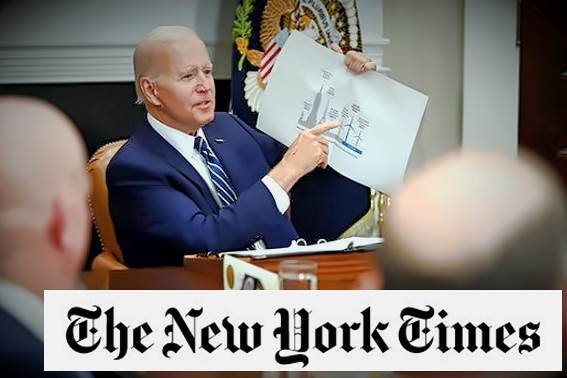“The unwise intention of carrying out a —-fiscal coup—- in the banking and energy sectors…
“IMF warns that extraordinary taxes on banking and energy should be limited and temporary… The institution points out that they may discourage investment if they remain in their current form… The International Monetary Fund (IMF) warns Spain that extraordinary taxes on banks, energy companies and large fortunes should be “limited and temporary”. These have raised significant revenue, some 3.5 billion euros in the 2023 fiscal year, and have helped finance measures to combat the energy and price crises, the IMF admits. However, the Washington-based institution considers that these taxes, if maintained in their current format, could be “particularly distortionary and create uncertainty”, which in turn “could discourage investment that is already weak”.
EL PAÍS BY ANTONIO MAQUEDA, MADRID - JUNE 17, 2024 - ENGLISH EDITION BY GERMAN & CO.
Indeed, “Long Live the King”…
“The King’s Two Bodies,” written by Ernst Kantorowicz in 1957, delves into the historical concept of the monarch’s dual role—the natural body and the body politic—and traces its origins to the Middle Ages, a pivotal period in the development of political thought.
The king’s natural body, with its physical attributes, weaknesses, wishes, sufferings, and mortality, is a human reality; however, the king’s spiritual body, which transcends the earthly realm, symbolizes his divine right to rule for the benefit of all subjects in the kingdom. The theory sounds lovely, but we are far away from it… However, history indicates that taxation was the main concern.
The “King’s two bodies theory,” with its central concept of leadership’s dual nature, holds historical and contemporary relevance. It provides a unique lens through which one can understand the complexities of power in today’s political landscape, highlighting leadership’s inherent duality.
Current political leadership, which is based on all kinds of philosophies, aims to unite rather than disunite its people. Why? It does not exercise its leadership role through dogma. It utilizes the thermometer of the social situation at the moment to its advantage, striving to maintain its grip on power. This petty action has resulted in most societies worldwide being broken, fractured, and confused.
People in leadership positions have completely failed to uphold their solemn responsibility to work for society’s welfare. However, even more dangerous for today’s weak democracies is where autocratic power has, consciously or unconsciously, been eroding the legal framework; unfortunately, this condition is increasingly palpable, causing a permanent crisis where the opponent is always to blame.
The banking and energy sectors are two of the most crucial pillars of the modern economy. They play a pivotal role in the generation of employment opportunities and the stimulation of economic expansion. These industries are of critical importance in ensuring the smooth functioning of various aspects of the economy, contributing significantly to overall stability and development.
The banking sector, a pivotal component of the economy, is tasked with facilitating financial transactions, providing loans and credit, managing savings and investments, and offering a range of financial services to individuals, businesses, and governments. The issue is not merely financial; it is also about livelihoods. Banks play a pivotal role in the allocation of capital, the promotion of economic growth, and the facilitation of economic activities by providing a stable and efficient financial system.
The energy sector is of great importance for the functioning of the economy and the operation of various industries. It encompasses the production, distribution, and consumption of energy resources, including oil, gas, electricity, and renewable energy sources. The energy sector ensures the availability of reliable and affordable energy supplies, which are critical for industrial production, transportation, heating, and cooling. Furthermore, it contributes to the creation of employment opportunities, technological innovation, and sustainable development.
In summary, both sectors are of great importance for driving economic growth, creating employment opportunities, and ensuring the smooth functioning of the economy.
On November 13, 2022, I posted the widely circulated article “The Drought (1964).” This essay delves into the Russian invasion of Ukraine and the Machiavellian strategies employed in the natural gas market’s supply side. Additionally, the article sheds light on the political inclination to interfere in the energy.
“Not even in the mind of that genius of science fiction storytelling, James Graham Ballard (JG Ballard, Shanghai, British International Treaty 1930-London, UK 2009) in his short story The Drought (1964), did he fail to visualise what would affect in the future the colony of individuals inhabiting a small, remote, and sick planet, called: Earth.
Not only the human sensory system has been affected by these new living conditions, but also industry in all its processes, a consequence of the forced confinement of human beings, which prevented them from going to their workplaces normally, is suffering from the non-existence of raw materials and components to keep the production chain in operation in order to supply the basic needs that man requires for his subsistence.
The lack of supply of essential goods… together with the excessive costs of international sea freight transport, triggers the poison known as inflation. Global Cumulative Inflation from January 2020 to December 2021 went from 1.9% to no less than 3.5%, practically doubling in one calendar year, and by the end of the period the prediction is close to 7%, according to World Bank indicators. In other words, in a short period of time, three years, accumulative inflation has tripled. There is no national economy or family wallet that can deal with this -financial storm-.
In addition to this undesirable economic context, to begin with caused by the SARC-COv-2 virus, this financial setback has been compounded since February this year by Russia’s invasion of Ukraine, which has had a negative impact on the fossil fuel market, specifically on the stable and safe purchase price of natural gas from the Tsarist domain. The reason for this is Russia’s sharp military strategy in the economic order in this conflict, using the systematic cuts of natural gas to its customers on the continent as a new element of warfare, known under the concept: Natural gas is the new “Russian winter” as an element of warfare?
Obviously, this clever (Machiavellian) strategy on the part of the imperial government of Russia has deepened the economic crisis to levels unprecedented in contemporary history, accelerating the inflationary process in such a way that it has the finances of almost all nations in check, (weakened by extraordinary expenditures (issuing public debt) through subsidies and investments in the health sector aimed at coping with the pandemic times) that drift to the fragile economy of hundreds of millions of families around the world, who are unable to cope with their basic financial commitments, payment of electricity bills, settlements on mortgage commitments, etc……
There is no doubt about the concern of the political authorities regarding the current economic crisis, that it is urgent and necessary to resort to emergency measures to deal with this unsustainable economic situation, however, these political actions in financial matters must be based on objective rationality, on the true origin of the crisis, the current inflationary process is the result of the result of the pandemic and the recent armed conflict. The Russian invasion of Ukraine has had a direct impact on the natural gas market, causing a disruption in prices due to a strategically planned restriction in supply.
In view of this, the electricity industry has no direct responsibility for the background of the current economic crisis (neither does the political authority), on the contrary, it is one of the most affected parties in the context because its production costs have increased exponentially. A financial intervention in the electricity industry by means of a cap-price is perhaps not the smartest economic measure, because they (the electricity industry) do not have any tools to influence the price of natural gas. This is a governmental issue, where politicians are responsible for finding mechanisms to solve the situation. In this sense, some European government officials have put forward valid proposals aimed at contributing to the relief of electricity supply to both the population and industry, without risking, firstly, social peace and, secondly, the financial health of the energy sector, which could lead to a domino effect on other sectors of the economy, on the basis of state guarantees, which could be one of the logical alternatives at this point in time…
"THE DROUGHT (1964)" / HTTPS://WWW.GERMANTOROGHIO.COM/BLOG-1-2/BLOG-POST-TITLE-FOUR-9R7YF-ET66S-BCDGL-Y5YY5
Amidst a global fiscal ‘drought,’ perhaps celestial deities will steer the sovereign’s course. We hope the wise monarch, with “Musk” helps, will send his followers to Mars aboard the Starship in pursuit of the ‘argent’ missing from his royal treasury, instead of focusing on the banking and energy sectors.
“Long Live the King”…
IN THIS EDITION, YOU CAN READ ABOUT BIDEN'S TOUGH-ON-CHINA STANCE THREATENING THE GREEN AMERICA PUSH. THE PRESIDENT IS ATTEMPTING TO BALANCE THE GROWTH OF CLEAN-ENERGY INDUSTRIES WITH THE REDUCTION OF CHINESE IMPORTS LIKE BATTERIES AND SOLAR-PANEL COMPONENTS. WSJ, TODAY BY PHRED DVORAK REPORTS.
“Being a blogger is challenging, yet it’s a rewarding profession where you’re driven to do everything to ensure satisfied followers. Now, on “X”, giving a “like” or “retweet” to a post remains confidential. This simple act is free and provides us with immense support. Thank you in advance…
https://x.com/Germantoroghio/status/1803084785436279012

In December 2023, Energy Central celebrated top contributors in the Energy & Sustainability Network at the 'Top Voices' event. Winners were featured in 6 articles, demonstrating community recognition. The platform enables professionals to share their work, interact with colleagues, and collaborate with influencers. Congratulations to the 2023 Top Voices: David Hunt, Germán Toro Ghio, Schalk Cloete, and Dan Yurman for demonstrating their expertise. - Matt Chester, Energy Central

Don’t miss out on the chance to show us some love by tossing a coin our way and signing up for our newsletter. Your support is like a ray of sunshine on a cloudy day, fueling our passion to keep churning out awesome content just for you. We’re beyond grateful to have you as part of our tribe!

Thank you for your kind contributions…
Have a wonderful day filled with good health, happiness, and love…

Workart by Germán & Co
Biden’s Tough-on-China Stance Threatens Green America Push
President tries to balance building clean-energy industries and curbing Chinese imports such as batteries and solar-panel parts
THE WALL STREET JOURNAL ARTICLE BY PHRED DVORAK, DATED JUNE 18, 2024.
The Biden administration is hoisting barriers to Chinese clean-energy imports to protect domestic industries as the presidential election nears. But the trade restrictions also threaten another of Biden’s priorities: building out renewable-energy generation.
This month, the administration allowed a set of duties aimed at China-based manufacturers of solar panels to take effect—after having put the measures on hold two years ago. The International Trade Commission, a federal agency that analyzes trade issues, also gave its initial go-ahead to an antidumping petition that some U.S. solar manufacturers have backed. In the next few weeks, the administration is expected to close a tariff loophole that let companies bring in many solar panels duty-free.
Those moves, along with others that raise tariffs on green products such as batteries and electric vehicles, represent some of the strongest attempts yet to protect nascent industries from a glut of green Chinese products and wean the U.S. off clean-energy supply chains that Beijing dominates.
But the U.S. still relies on imported solar components, and some industry executives say the moves—particularly the antidumping petition—are causing developers to pause panel acquisitions, push back work time lines and prepare for higher costs. That in turn threatens the fast rollout of renewable energy needed for the U.S. to hit ambitious clean-energy and climate goals, they say.
The Biden administration is “trying to strike a balance there between [its clean-energy goals and support of domestic manufacturing], and they’re at odds with each other in a lot of ways,” said Andrew Gier, an energy-practice director at Capstone, a policy consulting firm based in Washington, D.C.
The administration’s support of domestic manufacturing has helped its green agenda not hurt it, said Ali Zaidi, President Biden’s national climate adviser. That is because the government is ensuring that supplies of batteries and renewable components are plentiful and don’t depend on one country such as China, he said.
“There has not been a trade-off,” Zaidi said. Instead, he added, the government has spurred investments that “build out not just deployment of solar but manufacturing of solar here in the United States.”
The debate around the clean-energy trade measures underscores the fine line the Biden administration must walk between promoting its green agenda and sheltering U.S. manufacturing. Two years after incentives in the Inflation Reduction Act set off a race to build clean-energy supply chains in the U.S., companies have announced $114 billion in investments in products such as batteries, solar panels and electric vehicles, according to environmental business group E2.
But China still hosts 80% of solar-manufacturing capacity and 75% of battery production, the International Energy Agency estimates, meaning the U.S. will depend on China’s manufacturers for clean-energy supplies for the foreseeable future.
“Given the relentless efforts of the Chinese government and Chinese-headquartered companies to dominate solar manufacturing, we have to be equally relentless to ensure that trade enforcement works,” said Timothy Brightbill, a partner at Wiley Rein and chief counsel on the antidumping petition.
In solar, that reliance has been heightened by a halving of panel prices during the past year as Chinese manufacturers and their operations in Malaysia, Thailand, Vietnam and Cambodia pumped out supply, Brightbill said. Imports soared and inventory piled up in the U.S., he added.
Solar-panel maker Qcells, a unit of South Korean conglomerate Hanwha, is spending billions of dollars to expand in Georgia. Yet Hal Connolly, vice president of public policy and government relations at Qcells, said last month that customers are opting to buy imported panels that are priced below what it would cost to make them in the U.S. The company and its peers are “losing millions of dollars per month,” he said at an International Trade Commission hearing on the antidumping petition.
Qcells is one of the companies backing the petition, which claims that manufacturers in the four Southeast Asian countries are benefiting from unfair subsidies and dumping solar panels and cells, a critical part.
Not everyone agrees. Lured by government incentives, Canadian Solar completed a $270 million panel-making factory in Texas last year. The company, which is based near Toronto and makes most of its products in China, is also setting up an $800 million plant in Indiana to produce solar cells.
The Indiana plant is expected to be ready in 18 months. Until then, Canadian Solar plans to import panel components from its factory in Thailand, which could be affected by new tariffs. “Carrots work, sticks don’t” when trying to encourage the growth of renewable-energy industries, said Thomas Koerner, the company’s head of global sales.
The U.S. isn’t making solar cells yet, and won’t be making enough to satisfy domestic demand for the next decade at least, according to green-energy lobby American Clean Power.
Jim Murphy, president of Chicago-based energy company Invenergy, said the restrictions could slow renewable-energy projects. The petition is leading Invenergy, which has billions of dollars of renewable-energy generation projects in its pipeline, to review all its panel-import and project-sales contracts to see what the effects will be, Murphy said.
The uncertainty from the antidumping petition and other trade actions “just slows down projects and…puts developers in a tough position with their customers,” he said. “And it does not help with achieving the deployment objectives that any of the individual companies or the industry writ large—and I think the Biden administration—have here.”
- SEO Powered Content & PR Distribution. Get Amplified Today.
- PlatoData.Network Vertical Generative Ai. Empower Yourself. Access Here.
- PlatoAiStream. Web3 Intelligence. Knowledge Amplified. Access Here.
- PlatoESG. Carbon, CleanTech, Energy, Environment, Solar, Waste Management. Access Here.
- PlatoHealth. Biotech and Clinical Trials Intelligence. Access Here.
- Source: https://energycentral.com/c/og/kings-two-bodies
